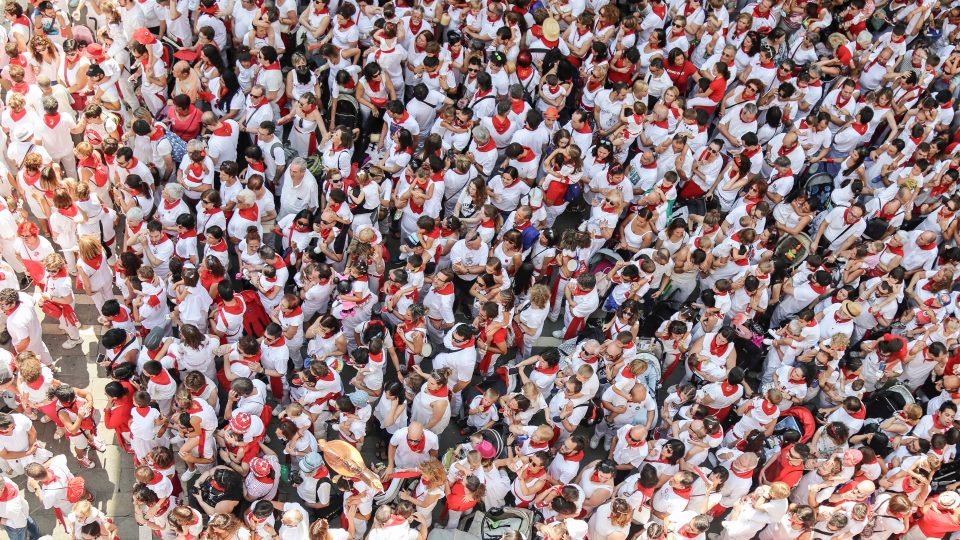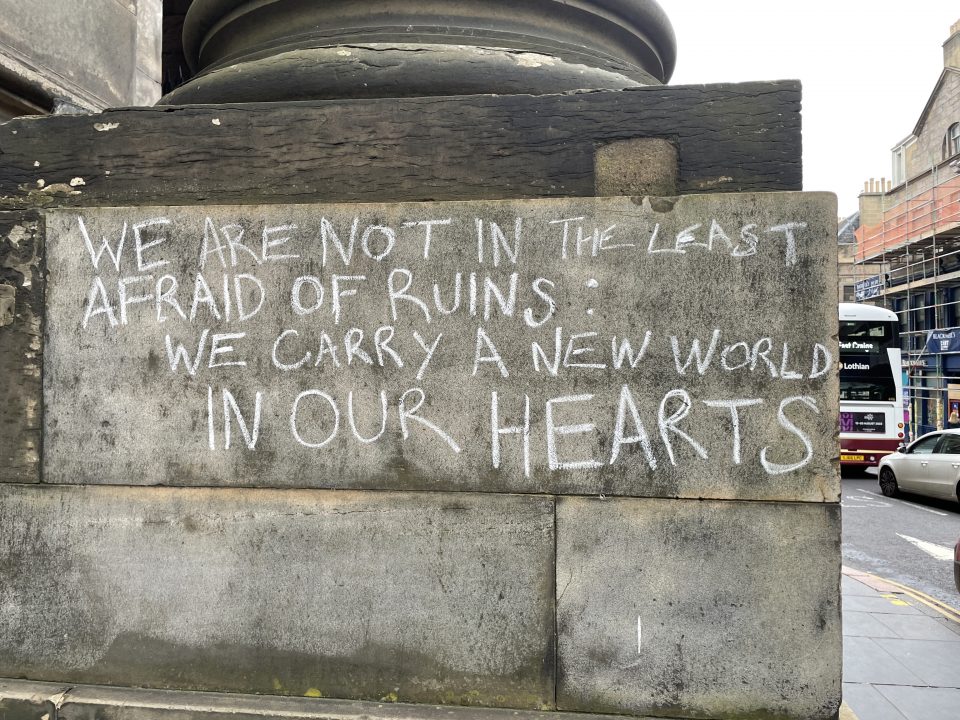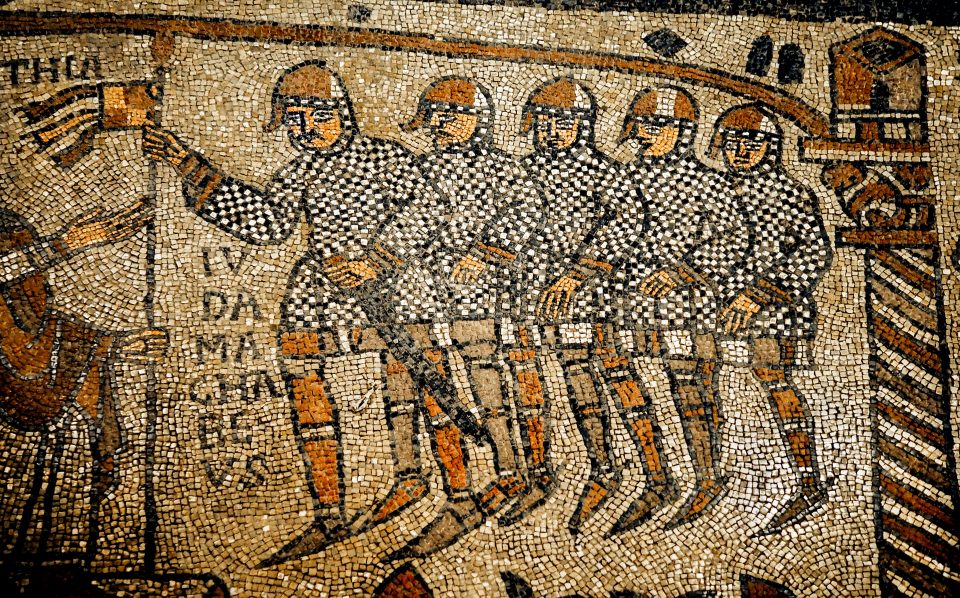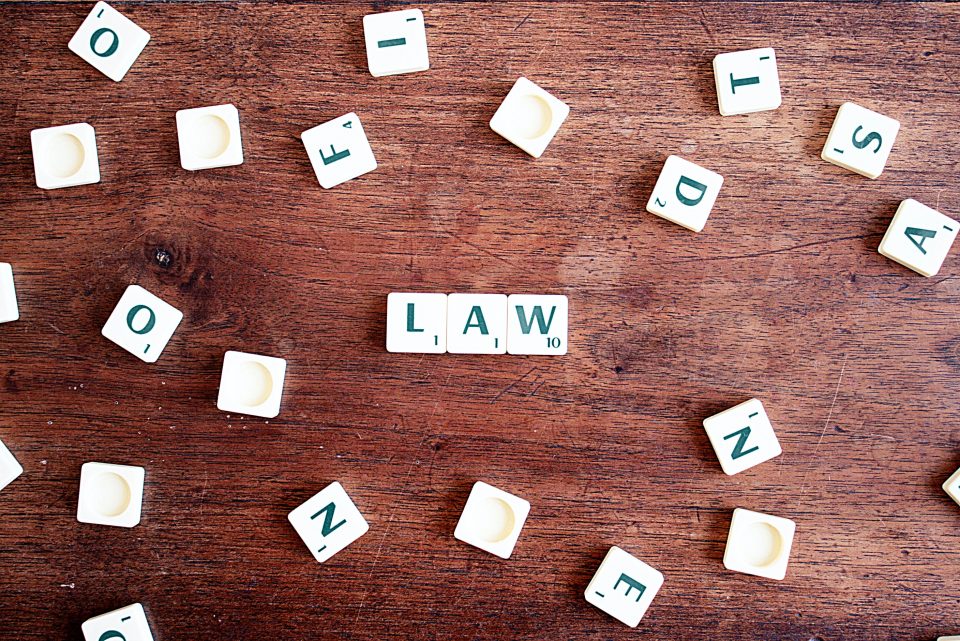Before I dive into the whole meek inheriting the earth bit I want to start with my take on the beatitudes as a whole. Christianity has been pretty good at the old rules and regulation side of things for many centuries. We love a list of things that are prohibited and you should most definitely not ever do and …
Paying Attention
In August Rob and I made a flying visit to Edinburg to do some “work” at the fringe with the Methodist church. Our job was to pay attention! A simple task. Well! If you have been to the fringe you will know it is an assault on the senses. Posters, flyers, people, entertainment, jugglers, comedians, musicals, giveaways, noise and so …
How You Doing?
Now if you have watched Friends you will know that Joey’s chat upline is the title of this blog. And if you do know how Joey says “How you doing?” your brain may have just read the tile using Joey’s voice and if not you may have just it now haha. So where are we going with this weeks blog, …
Let’s talk about the Maccabees!
I read this chapter and thought it was a bit unfair for me to go through all Pete unpacks and then not be there to join in the discussion (I am at a wedding). If you have read the chapter you will know it is focussed on the resurrection and how this event caused the gospel writers and even more …
Old and New
Let’s talk Christmas….. It’s where Pete starts the chapter so blame him for a start of May look at all things Christmas. Christmas comes with traditions like what you eat, when you open presents, what you watch on tv and many more. These traditions are part of your life and are given to you by your family. But when you …
Jesus and all That
Welcome to this weeks blog for those reading this live! We are meeting at the Crescent Club at 7:30pm but also there is an opportunity to meet beforehand to share in a Holy Week reflection that is 7:15pm Cullercoats Bay for Signs of Wonder. If you are reading this because google has brought you here then enjoy and leave a …
Why we need lawyers!
Welcome to this weeks blog which is based on the third chapter (God’s Laws: Evasive and Fidgety Little Buggers) of Pete Enns book (How the Bible Actually Works). Rules or laws are complicated, they shouldn’t be but they are. Let us take a look at some everyday simple rules and laws that shouldn’t be difficult to follow but some …
The Bible’s True Purpose
We are often most disappointed or disillusioned with something when it fails to live up to the hype. So that latest tv show you have been told is a must see turns out to be slow and boring so you lose trust in the persons opinion. The band that are the next big thing play repetitive generic music and you …
Soothing the Suffering
Soothing the suffering is nothing new, especially during the last two years as we’ve navigated our way through the pandemic. Suffering will mean something different too each of us depending on the external and internal situations we find our self in. A phrased used a lot on social media during the first lockdown was ‘We’re all in the same storm …
Coming Soon
As we slowly move through January and cast of those silly resolutions we promised we would stick to only two weeks ago and prepare ourselves for what 2022 has to bring we thought it would be good to do a little preview of the theme we are going to be tackling over the coming months (with some guest posts in-between …








